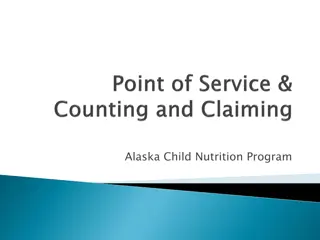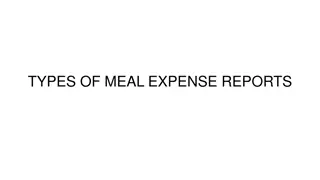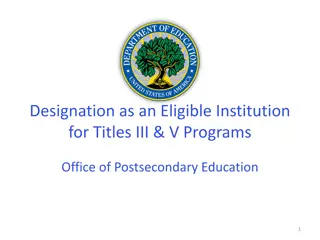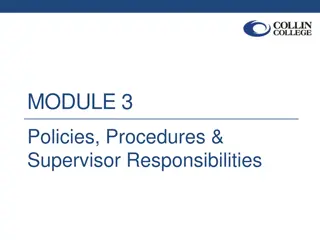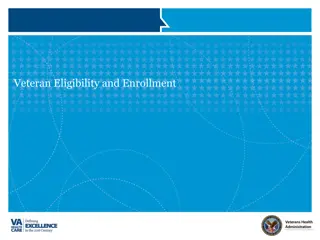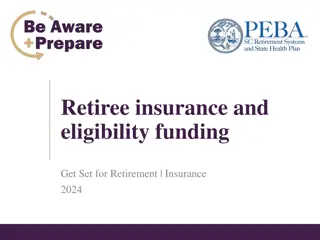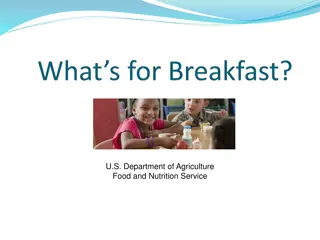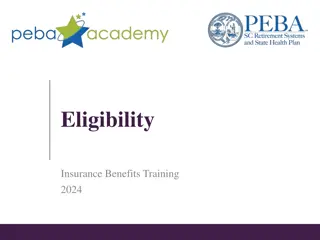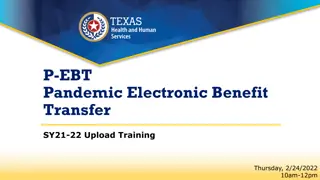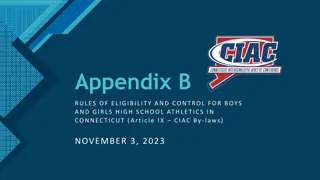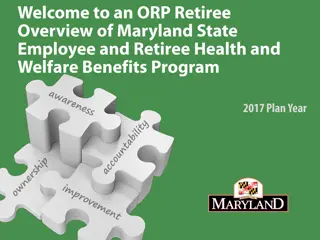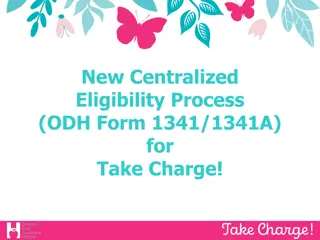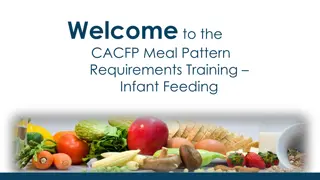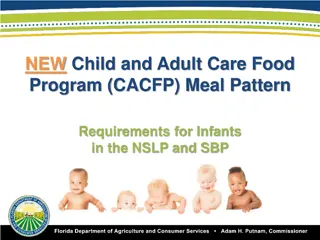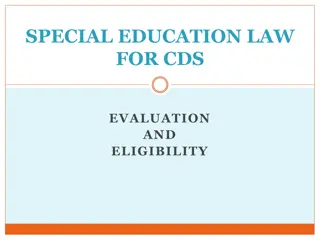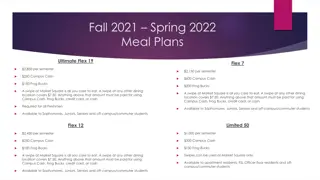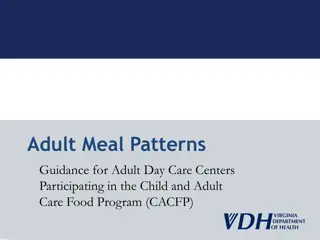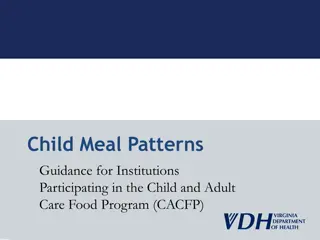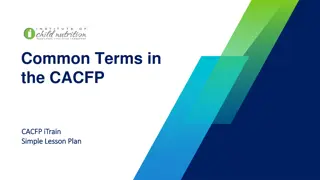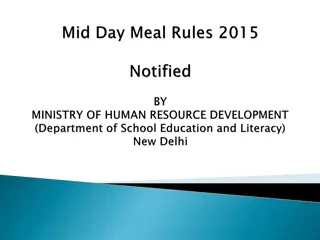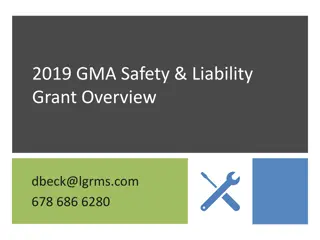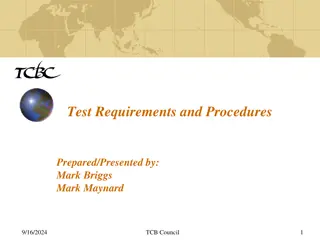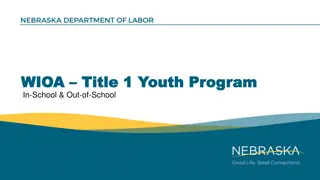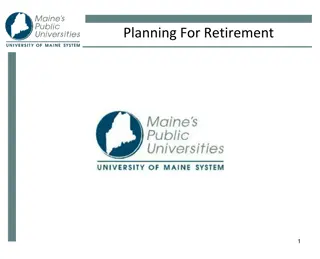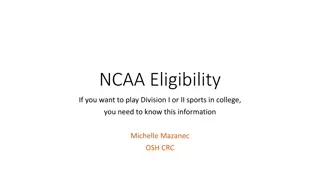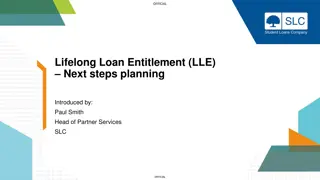Home-Delivered Meal Eligibility Policies and Procedures
Guidelines and regulations for determining client eligibility and service priority for home-delivered meals for older Native Americans and family caregivers. The policies cover assessment criteria, limitations, settings for service provision, and considerations for non-Native American individuals. Eligibility criteria include factors like ability to shop and prepare meals. Services are based on Dietary Guidelines for Americans and are provided by qualified nutrition service providers.
Download Presentation

Please find below an Image/Link to download the presentation.
The content on the website is provided AS IS for your information and personal use only. It may not be sold, licensed, or shared on other websites without obtaining consent from the author. Download presentation by click this link. If you encounter any issues during the download, it is possible that the publisher has removed the file from their server.
E N D
Presentation Transcript
Policies & Procedures Policies & Procedures Home Home- -Delivered Meal Eligibility Delivered Meal Eligibility Heidi Robertson, TVI Nutrition Consultant TVI Webinar April 8, 2024
Outline Outline Regulations TVI Home-Delivered Meal Eligibility Accepting new clients/referrals Policy and Procedures Questions
1322.21 Client eligibility for participation (b) A Tribal organization or Hawaiian Native grantee may develop further eligibility requirements for implementation of services for older Native Americans and family caregivers, consistent with the Act and all applicable Federal requirements. Such requirements may include: (1) Assessment of functional and support needs; (2) Geographic boundaries; (3) Limitations on number of persons that may be served; (4) Limitations on number of units of service that may be provided; (5) Limitations due to availability of staff/volunteers; (6) Limitations to avoid duplication of services; (7) Specification of settings where services shall or may be provided; (8) Whether to serve Native Americans who have Tribal or Native Hawaiian membership other than those who are specified in the Tribal organization s or Hawaiian Native grantee s approved application; and (9) Whether to serve older individuals or family caregivers who are non-Native Americans but live within the approved service area and are considered members of the community by the Tribal organization.
1322.23 Client and service priority The Tribal organization or Hawaiian Native grantee shall ensure service to those identified as members of priority groups through their assessment of local needs and resources. (b) The Tribal organization or Hawaiian Native grantee shall identify criteria for being given priority in the delivery of services under Title VI, parts A or B, consistent with the Act and all applicable Federal requirements.
1322.27 Nutrition services (2) Home-delivered meals are meals meeting the Dietary Guidelines for Americans and Dietary Reference Intakes as set forth in section 339 of the Act (42 U.S.C. 3030g 21) provided by a qualified nutrition service provider to eligible individuals and consumed at their residence or otherwise outside of a congregate setting, as organized by a service provider under the Act. Meals may be provided via home delivery, pick-up, carry-out or drive-through, or through other service as determined by the Tribal organization or Hawaiian Native grantee. (i) Eligibility criteria for home-delivered meals, as determined by the Tribal organization or Hawaiian Native grantee, may include consideration of an individual s ability to leave home unassisted, ability to shop for and prepare nutritious meals, degree of disability, or other relevant factors pertaining to their need for the service.
General Title VI Eligibility AI/AN/NH Elder Part A grants (American Indian/Alaska Natives), The tribe determines the age of eligibility Usu. 55 years. Funding based on number of elders aged 60+. Part B grants (Native Hawaiians), eligibility set at 60 years. Title VI Eligibility Reside in your designated service area Elders who are not members of your Tribe, but are American Indians/Alaska Natives and live within your service area are eligible Note: Title III eligibility is age 60 Others eligible to receive home-delivered meals include: Spouses, regardless of age Individuals with disabilities who live with the elder Volunteers of any age volunteering during mealtime Caregivers who voluntarily care for the elder during mealtime
You have the ultimate decision on who you choose to serve. Just update your policies and procedures
Prioritize greatest social & economic need Assess clients: When beginning a service Annually A significant change occurs Tips to Develop Policies & Procedures Refer to your needs assessment for information on elders health and well-being Consider the number of people you can serve: Resources: funding, staffing, vehicles, equipment Meal safety: temperature of meal Current length of meal routes Communicate your decision-making criteria and capacity with medical professionals, tribal councils, and other agencies that refer to your services.
Thank you! Thank you! Heidi Robertson, TVI Consulting Heritage Health Heidi@heritagehealthhi.com


